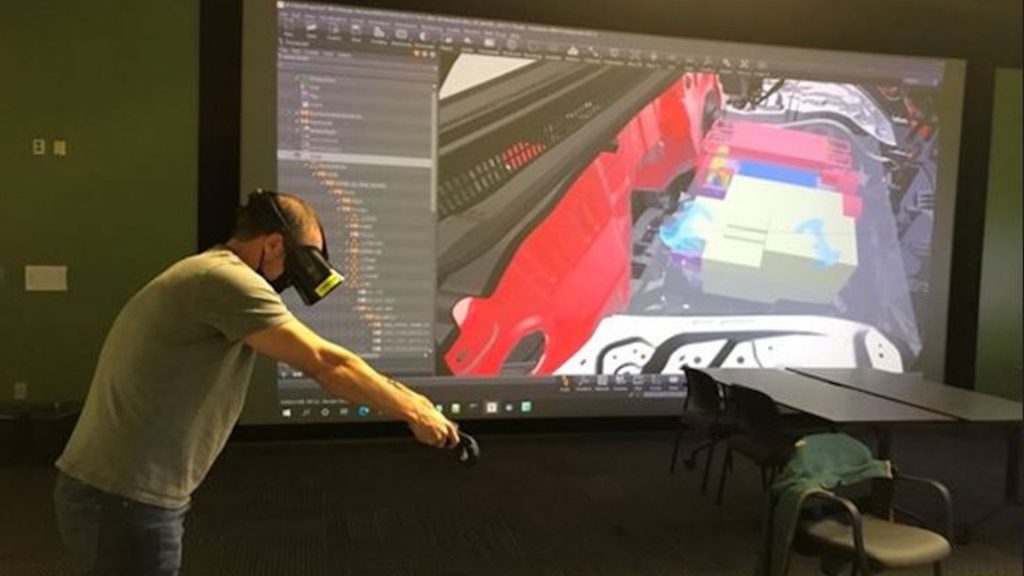Evento híbrido ocorre em 30 de agosto reunindo executivos da companhia e reconhecidos profissionais do mercado; Fórum é composto por palestras, painéis e cases de negócio apresentados por especialistas renomados das maiores empresas do país, juntamente com o time da Siemens, do Brasil e do mundo; Painéis técnicos focarão em inovação na indústria, infraestrutura e… Continue reading Siemens Innovation Forum 2022: como acelerar a transformação digital das indústrias e das infraestruturas
Tag: Mobility
@Toyota: Digital Wizards: Here’s How Toyota Motor North America R&D Turns Clay Models into Fully Developed Vehicles
Pete Ljubevski is the group manager of Engineering & Data Innovation (EDI), a department within Toyota Motor North America Research and Development (TMNA R&D) that plays a key, though largely unsung, role in product development. This team of “digital engineers” use computer-aided design (CAD) to bring designs to life, so they can ultimately be manufactured… Continue reading @Toyota: Digital Wizards: Here’s How Toyota Motor North America R&D Turns Clay Models into Fully Developed Vehicles
The Best Espresso Machines for the Home Barista
There’s always room to up your game, and there are quite a few additional tools that can help you make the best espresso possible. These are all tools you’d employ before the brew, setting the stage for the perfect extraction. Fellow Atmos Canister for Coffee Beans ($40) A vacuum canister is a great way to… Continue reading The Best Espresso Machines for the Home Barista
SoftBank-backed Socar sees post-IPO drop
The South Korean car-sharing firm saw its share price fall below its listing price an hour after its market debut. Go to Source
Kongsberg Automotive appoints new Head of Investor Relations
Zurich, August 22, 2022: Kongsberg Automotive (KA) has appointed Mads Langaard as the new Head of Investor Relations (IR), effective August 22, 2022. As the Head of Investor Relations, Mads will help communicate KA’s equity story and play a key role in strengthening the company’s relationships with shareholders, analysts, bondholders, and banks. Mads comes to… Continue reading Kongsberg Automotive appoints new Head of Investor Relations
Lincoln’s new concept car is an autonomous EV that runs on vibes
Lincoln is celebrating its 100-year anniversary with the release of the L100, a concept car that harkens back to the automaker’s legacy while also looking ahead to a future where pesky controls like steering wheels may no longer be needed. The L100 has all the hallmarks of a 21st-century concept car: sleek, futuristic design; gull-wing… Continue reading Lincoln’s new concept car is an autonomous EV that runs on vibes
Drivers in the UK are not liable for accidents involving autonomous driving
In the UK, the roadmap states that drivers are not liable for autonomous vehicles. The question of Liability has been discussed for a long time and with it the question of how the insurance world should adapt to it. In Great Britain the question has already been addressed and since 2018 the drivers of autonomous… Continue reading Drivers in the UK are not liable for accidents involving autonomous driving
LILEE Systems Selected by Taiwan Railways Administration to Implement the Mission-Critical Train Control 4.0 System to Increase Rail Safety
SAN JOSE, Calif., Aug. 22, 2022 /PRNewswire/ — LILEE Systems is proud to announce that it has been selected by Taiwan Railways Administration (TRA) to deliver advanced rail safety technology and has successfully completed proof of concept (POC) of the mission-critical Train Control 4.0 system (TC 4.0) on EMU800 trains on the Liujia Line in Northern Taiwan. TC 4.0 is an end-to-end train safety and train control solution that provides overspeed protection, work zone protection and temporary speed… Continue reading LILEE Systems Selected by Taiwan Railways Administration to Implement the Mission-Critical Train Control 4.0 System to Increase Rail Safety
Shield AI Announces Francois Chadwick as Chief Financial Officer
SAN DIEGO, Aug. 22, 2022 /PRNewswire/ — Shield AI, the fast-growing defense technology company building AI pilots for aircraft, today announced that Francois Chadwick has joined the company as Chief Financial Officer. Chadwick brings more than 30 years of financial experience, serving in executive roles at Uber, KPMG, and Volta. While at Uber, he grew the… Continue reading Shield AI Announces Francois Chadwick as Chief Financial Officer
@Nissan: Nissan’s Aditya Jairaj named 2022 Automotive News Rising Star000826
August 22, 2022 NASHVILLE, Tenn. – Aditya Jairaj, director, electric vehicles marketing and sales strategy, was named a 2022 Automotive News Rising Star. In his current role, Jairaj is responsible for helping to drive Nissan’s EV transformation – a crucial part of Nissan’s Ambition 2030 vision, which is focused on electrification and technology innovation. Jairaj’s… Continue reading @Nissan: Nissan’s Aditya Jairaj named 2022 Automotive News Rising Star000826
